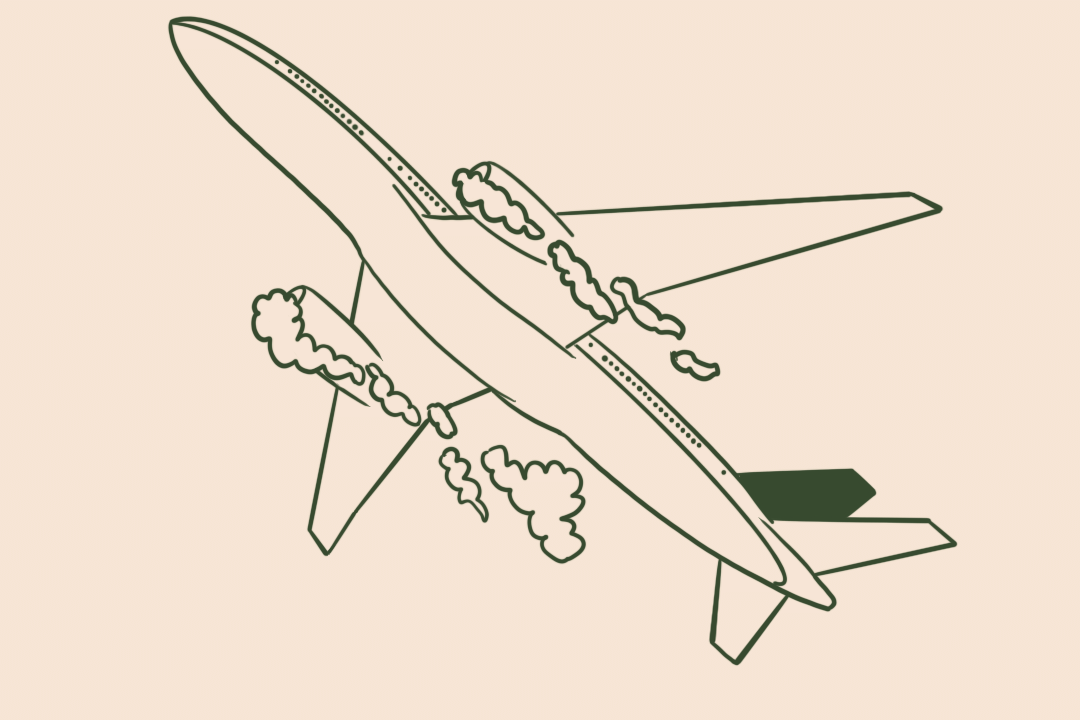Undertaking an honours thesis is — as you would imagine — a rollercoaster of stress, new knowledge, fear, excitement, and a giant sigh of relief as it finishes. But one thing I did not expect to find during the honours process was friendship.
Students frequently bemoan the loneliness of writing an honours thesis. However, completing my honours as part of a Bachelor of Creative Intelligence and Innovation meant I had the opportunity to complete my thesis within a cluster of five other students. While most group assignments (especially those that may span over several months) are met with an eye-roll and a sense of frustration, this was a unique group experience that had no such negative feeling. We worked closely, though still writing separate theses. We could check in and help each other, conduct research together, and share a laugh. But there was still the freedom to write our papers individually, without an unsavoury sense of waiting for each other’s parts of the assignment.
I researched using environmental nudges to foster sustainable behaviours in higher education institutions such as universities. I wanted to investigate nudges such as ‘defaults’ to encourage sustainability as it takes the onus away from the individual. Climate action is undoubtedly overdue and imperative. But placing the blame and a sense of guilt on individuals to enact change is unethical; huge companies are responsible for most of the environmental damage. Nudges are a set of instruments that change behaviour through changing a context. For instance, a green default is a nudge with an option pre-selected so that the user makes a green ‘choice’ without doing anything. I focused on three specific nudges; over the seven months, they evolved and changed based on what my research was showing me. I believe these findings are incredibly important for universities like UTS to learn from and implement my recommendations. We all have a role to play when it comes to climate change and UTS definitely still has a long way to go.
My research involved interviewing many individuals within UTS who know how these nudges could work. It was exciting to learn from these individuals and I am incredibly grateful to them for sharing their wisdom. Here’s a summary of my findings:

1. The first nudge, which retrospectively is the least important, is carbon offsetting staff flights. Offsetting flights ‘compensates’ for the unsustainable behaviour of flying by paying for measures that would have a
positive impact on global carbon emissions (e.g. funding reforestation or building solar farms). Currently, staff arrange travel through a software program that currently has no carbon offset option. Opinions on carbon offsetting are varied. Some see offsetting as a cop-out, many are sceptical of it, and most see it as important, yet not urgent. While some of the other environmental initiatives I investigated directly impact the individual, choosing to offset a flight doesn’t (as the university would pay for the offsetting cost). Therefore, this initiative could be compulsory.
My long-term suggestion for universities like UTS is to tender one company to offset all of their travel emissions, or make carbon offsetting compulsory through the travel agency. Again, carbon offsetting won’t save the planet alone and shouldn’t be the priority (especially when so few staff are travelling anyway).

2. The most urgent and impactful nudge appears to be changing the staff superannuation (retirement fund) investment option to a sustainable portfolio. All Australian universities are required to have their
staff’s super investments with UniSuper. The default investment portfolio at UniSuper supports fossil fuels and other unethical and harmful companies. There is very little awareness around this, and I believe it’s a significant area for meaningful change.
I recommend that UTS:
a. Change their staff’s default investment portfolio within UniSuper to one of the three ‘sustainable’ options;
b. Create awareness among staff around green supers;
c. Lobby and push UniSuper (alongside unions and other universities) to make all their super funds more ethical and fossil-free in their investment policies.

3. The final nudge focuses on food. Plant-based foods have been proven to produce lower greenhouse gas emissions than animal-based foods, therefore decreasing the intake of animal products is essential in reducing the carbon footprint of humans. Important decision-makers at the university are open and excited by the idea of increasing the amount of plant-based food on campus (which are currently quite limited). However, despite a move towards plant-based foods globally, a negative perception of ‘vegan’ diets lingers.
My two suggestions are:
a. For university management to push all catering events to increase the proportion of plant-based food on their menus; for any new caterers that come to campus to have at least 30% of their menu as plant-based.
b. For universities to implement environmental nudges, we need to consider the barriers and enablers for implementation. For example, the three biggest barriers I uncovered are logistical problems not directly under the university’s power, high costs with no direct return for the university, and lack of awareness and resistance to change.
Conversely, the biggest enablers for implementing environmental nudges in a university setting are support from senior management, structural support (e.g. teams dedicated to sustainability), and collaboration and solidarity (e.g. student and staff involvement in sustainability initiatives). Understanding these barriers and enablers will encourage the university to make meaningful change beyond just recycling schemes or renewable energy.
My promising findings are largely due to the commitment and passion of numerous staff members and students. I am so inspired to see so many people within UTS dedicated to sustainability. Over the past few years I have been fortunate to work with many of these people.
But, there is still a long way to go. Universities pride themselves on preparing students for the future. Therefore, universities must listen to the demands of students regarding the climate crisis and form partnerships with students.


 -
-